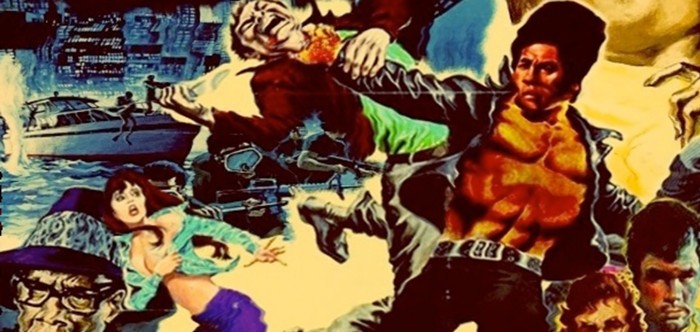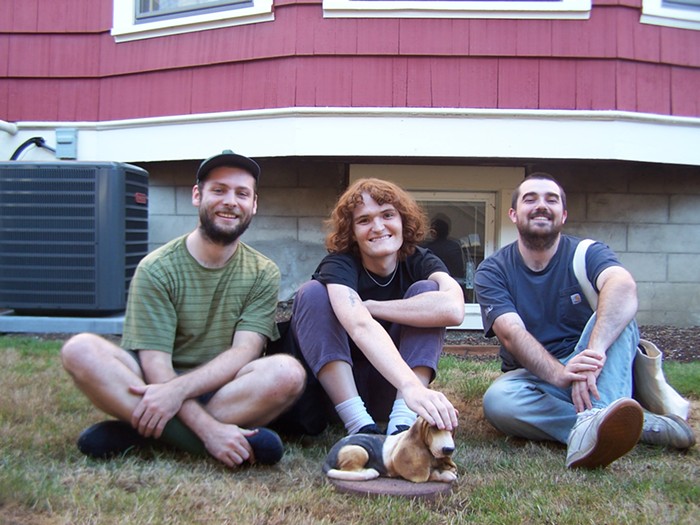Music geeks live for those songs or live performances that feel like the Earth has been bumped two degrees off its axis, leaving you lightheaded and jelly-legged. Such was the case on a lazy afternoon in 1990 when, during a channel-flipping frenzy, I found myself staring down Sun Ra and his Arkestra.
The entire ensemble was dressed in shiny, brightly colored robes, with the shiniest and most colorful reserved for the band's leader and pianist. They settled into a swinging hard bop number, with everyone singing about how you have to "listen to that cosmos song." Just as I fell into a pleasant trance, the alto sax player started attacking his instrument, forcing out squeals and honks and shrieks from the depths of his soul. It carried on for another four minutes in the same vein, oscillating to a doo-wop-inspired closing minute. By the end, I felt breathless. And I wanted more.
Lucky for me, the Arkestra recorded dozens of studio LPs during Sun Ra's lifetime and issued an almost equal number of live albums. I've spent nearly 30 years collecting these records and still haven't reached the bottom of the barrel. Every detail I learned about this band and its colorful leader—an Afrofuturist philosopher and master musician who often claimed he was from Saturn—only made me hungry for more.
Though Sun Ra left this planet in 1993, his Arkestra carries on his spirit and philosophies. It's led these days by Marshall Allen, that same alto sax player who shook me to my core and who, even in his 90s, still plays with passion and discord. The group's current incarnation comes to town in January for the first time since 1988 to play a pair of shows to coincide with an exhibit at the Portland Art Museum that features ephemera, costumes, and an hour-long film pulling from various TV and film appearances from throughout Sun Ra's illustrious career.
These shows provide a perfect excuse to direct those unacquainted with the Arkestra and their voluminous recorded output to the best albums for beginning a journey into the spaceways where this singular group seeks cosmic enlightenment through music.
Jazz in Silhouette (1959)
This early album comes from the Arkestra's time spent living and working in Chicago, when they were pushing gently against the boundaries of the bebop sound that had taken over the jazz world, with the influence of traditional African music sneaking into the mix. The record's collective approach feels like all the players—particularly the five saxophone players the group was carrying at this point—were jostling one another for room in these whimsical, crowded compositions.
Angels and Demons at Play (1965)
As the title relays, this album features two very different sounds from the Arkestra. The A-side, recorded in 1960, is dark and sultry, a rumbling from deep below the Earth's surface driven by bassist Ronnie Boykins and Marshall Allen's spritely flute playing. The flipside, recorded four years earlier, is cooler bebop fare that, in spite of song titles like "Demon's Lullaby," feels sanctified and glorious, particularly when tenor sax player John Gilmore starts soaring above it all.
Strange Strings (1967)
Called a "study in ignorance" by Sun Ra, this challenging record finds all the brass and woodwind players performing with mandolin, koto, and kora—instruments they had never touched before. The original three-track release is free jazz at its finest, with the Arkestra scraping and groaning through long, erupting improvisations aided by homemade metallic clangs and a playful sparkle.
Solo Piano - Volume 1 (1977)
As idiosyncratic as his piano playing often got, Sun Ra was, at his heart, a traditionalist, weaned on the boogie-woogie and big band sounds of his youth. There's no better expression of that than this solo session, recorded in 1977. "Cosmo Rhythmatic" spills over with notes and phrases, as if three Erroll Garner recordings were playing simultaneously, whereas a take on Jerome Kern's "Yesterdays" sways between Keith Jarrett-like minimalism and Cecil Taylor's percussive flurries.
Lanquidity (1978)
This is a true curiosity in the Sun Ra discography, as it finds the keyboardist and his Arkestra dabbling in funk and fusion. Their collective take on these groove-heavy sounds is as idiosyncratic as their wanderings through traditional big band jazz, with loud piano and synth overlays and spiky guitar tones from Slo Johnson and Dale Williams.
Sunrise in Different Dimensions (1981)
There's plenty of the Arkestra's usual intergalactic exploration throughout this live recording, but the real attractions are the jazz standards—including Duke Ellington's "Take the 'A' Train" and Thelonious Monk's "'Round Midnight"—that the band deconstructs and upends. It might feel sacrilegious if you didn't suspect that the original creators of these tunes would be delighted by these raucous renditions.



















